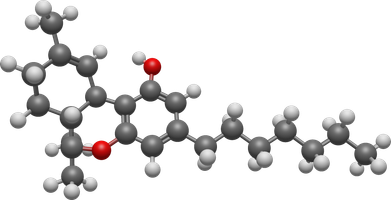THCP vs. THCH: How Strong Are They and What Are They Good For?
THCP (Tetrahydrocannabiphorol) and THCH (Tetrahydrocannabihexol) are two potent cannabinoids gaining attention for their intense psychoactive effects, far surpassing traditional Delta-9 THC. But how strong are they, and what are they best used for? This guide compares the strength of THCP and THCH and highlights their specific benefits and applications, helping you decide which is right for your needs.

THCP: Tetrahydrocannabiphorol is a naturally occurring cannabinoid discovered in 2019 in Cannabis sativa (strain FM2). It has a seven-carbon alkyl side chain, making it exceptionally potent by binding strongly to CB1 receptors in the brain’s endocannabinoid system (ECS).
THCH: Tetrahydrocannabihexol, identified in 2020, is another rare cannabinoid with a six-carbon alkyl side chain. It’s also highly potent but slightly less intense than THCP. Both are found in trace amounts in cannabis and are often synthesized from hemp-derived CBD for commercial use.
Both cannabinoids are psychoactive, producing effects stronger than Delta-9 THC, the primary psychoactive compound in cannabis. Their potency and unique effects make them appealing for recreational and therapeutic purposes, though research is still emerging.
Strength Comparison: THCP vs. THCH
The strength of THCP and THCH is determined by their binding affinity to CB1 receptors, which governs psychoactive effects. The key difference lies in their chemical structures, specifically the length of their alkyl side chains.
THCP Strength
Potency
: THCP has a binding affinity to CB1 receptors approximately
33 times higher
than Delta-9 THC (1.2 vs. 40 on the binding scale). In practical terms, its psychoactive effects are estimated to be
10–33 times stronger
than Delta-9 THC, though real-world intensity varies due to factors like receptor saturation, tolerance, and consumption method.
User Experience
: A 1 mg dose of THCP can feel equivalent to 10–30 mg of Delta-9 THC, producing an intense, long-lasting high often described as “psychedelic-like” with deep relaxation and amplified sensory perception.
Comparison to THCH
: THCP is
2–3 times more potent
than THCH due to its longer seven-carbon side chain, which enhances receptor binding. For example, 1 mg of THCP may feel like 2–3 mg of THCH.
THCH Strength
Potency
: THCH’s six-carbon side chain gives it a CB1 binding affinity roughly
5–10 times higher
than Delta-9 THC, making it less potent than THCP but still significantly stronger than traditional THC.
User Experience
: A 1 mg dose of THCH may feel like 5–10 mg of Delta-9 THC, delivering a strong, euphoric, and uplifting high with a clearer, more energizing effect compared to THCP.
Comparison to THCP
: THCH’s effects are less intense and shorter-lived than THCP’s, making it more manageable for users seeking a strong but less overwhelming experience.
Key Takeaway
THCP
is the stronger cannabinoid, with effects up to 33x more potent than Delta-9 THC and 2–3x stronger than THCH.
is potent (5–10x Delta-9 THC) but better suited for users who want a strong yet less immobilizing high.
What Is THCP Good For?
THCP’s extreme potency makes it ideal for specific recreational and therapeutic applications, but it requires cautious dosing due to its intensity.
Recreational Uses
Intense Euphoria
: THCP delivers a powerful, long-lasting high (12–24 hours), ideal for experienced users seeking deep relaxation or an immersive sensory experience.
Psychedelic-Like Effects
: Users report heightened colors, sounds, and introspection, making it suitable for introspective or creative settings (e.g., music or art appreciation).
Best For
: Seasoned cannabis users comfortable with strong psychoactivity who want a profound, couch-locking high.
Therapeutic Uses
Chronic Pain Relief
: THCP’s strong CB1 and CB2 receptor binding may provide significant relief for severe pain, such as neuropathic or inflammatory conditions.
Insomnia
: Its sedative effects make it a potential sleep aid for those with chronic insomnia or sleep disturbances.
Nausea and Appetite
: Early research suggests THCP may reduce nausea (e.g., for chemotherapy patients) and stimulate appetite, similar to Delta-9 THC.
Best For
: Patients with severe symptoms needing potent relief, under medical supervision.
Considerations
Risks
: Overconsumption can lead to anxiety, paranoia, or sedation. Start with micro-doses (0.5–1 mg).
Best Products
: THCP vapes, tinctures, or edibles for precise dosing.
What Is THCH Good For?
THCH’s balanced potency (5–10x Delta-9 THC) makes it versatile for users seeking a strong but more functional high, with applications in both recreational and therapeutic contexts.
Recreational Uses
Uplifting High
: THCH produces a euphoric, energizing, and social high, often described as “giggly” or clear-headed, ideal for daytime use or social gatherings.
Enhanced Focus
: Some users report improved concentration, making it suitable for creative tasks like writing or brainstorming.
Best For
: Users seeking a strong but manageable high without the heavy sedation of THCP.
Therapeutic Uses
Mood Enhancement
: THCH’s uplifting effects may help with stress, anxiety, or mild depression, offering a lighter alternative to THCP.
Moderate Pain Relief
: Its CB1 and CB2 activity provides pain relief for moderate conditions, less intense than THCP but effective for everyday aches.
Energy and Motivation
: Unlike sedating cannabinoids, THCH may support focus and productivity, potentially aiding conditions like ADHD (though research is limited).
Best For
: Patients seeking mood or pain relief without overwhelming sedation.
Considerations
Risks
: High doses can still cause anxiety or paranoia, so start with 1–2 mg.
Best Products
: THCH vapes or tinctures for fast-acting, controllable effects.
Conclusion
THCP is significantly stronger than THCH, with a potency up to 33x that of Delta-9 THC and 2–3x greater than THCH’s 5–10x. THCP is best for intense pain relief, insomnia, or deep recreational highs, while THCH excels for uplifting, social, or creative experiences and moderate therapeutic needs.
Disclaimer: This article is for informational purposes only and is not medical or legal advice.
